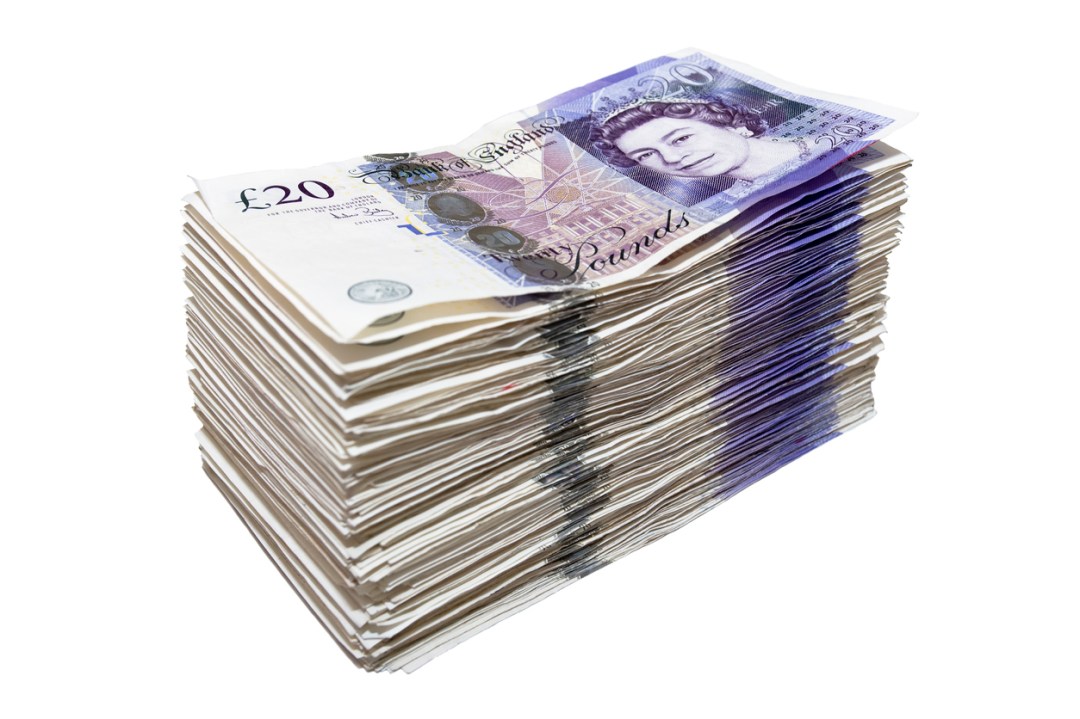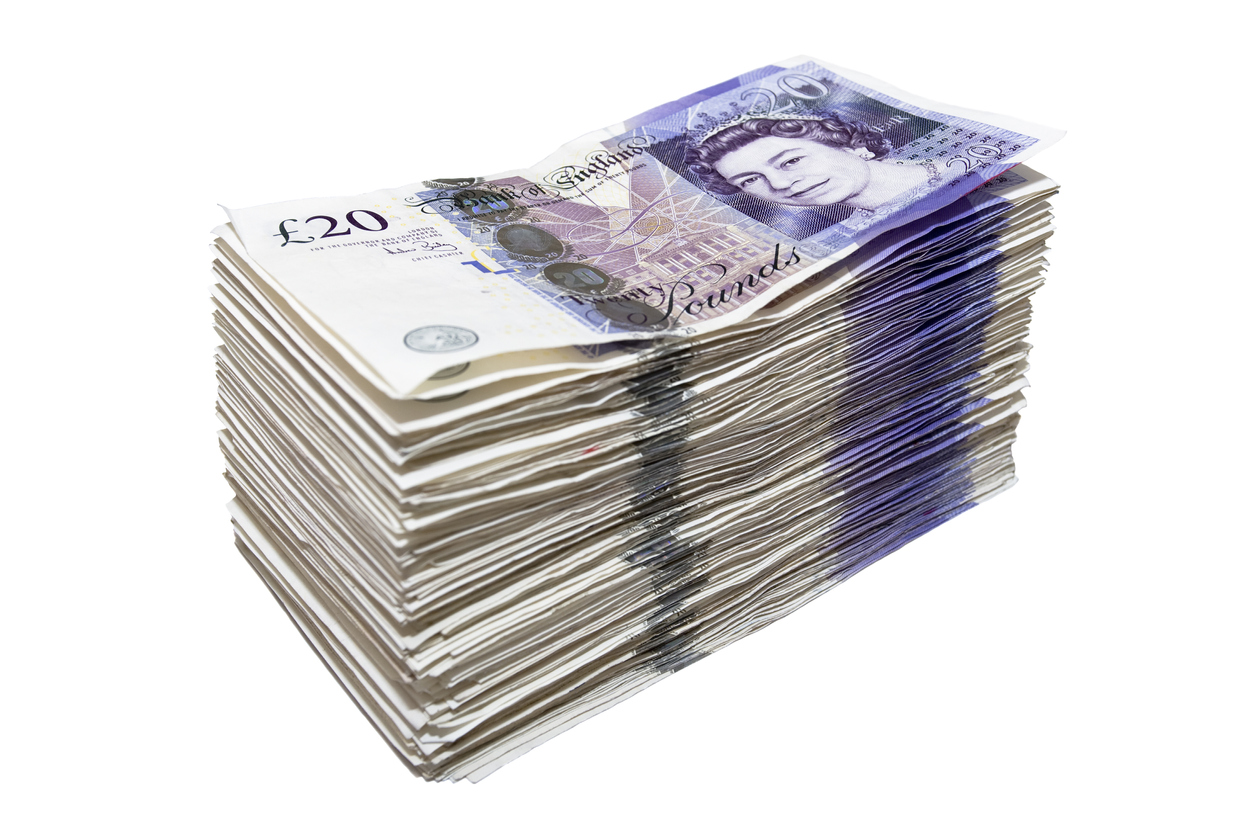Thanks to the recent spike in inflation, never have indisputable luxuries such as Sharwood’s mango chutney or Anchor butter quite so tested the domestic purse strings. The sad truth is, however, that it’s much worse than you think. Because unlike the watched kettle, the frog of devaluation hasn’t just arrived at a nice simmer, it’s begun to boil over. And mango chutney at £4.10 a jar is but the tip of the iceberg.
For the long view consider the BBC’s new drama, Ten Pound Poms, about Brits who emigrated to Australia in the 1950s for the princely sum of a £10 processing fee. These days the closest you’ll get to Australia for a tenner is a four-pack of Castlemaine XXXX – and there probably won’t be much change from that either.
You might remember a time – back when a £5 note was dark blue-grey and had the Duke of Wellington on the back – that a fiver was worth having in your pocket. Forty years ago, say, a pint cost about 60p and a finger of Fudge was thruppence (or maybe 5p at a push, if memory serves). Now you can pay a fiver for a pint – or £8 in central London – and you don’t even get to keep the glass. A finger of Fudge, meanwhile, is 25p. I know what you’re thinking – you’re surprised you can still buy anything for 25p. What it basically means is that a fiver is now worth what quid was in the mid-1980s, in beer and Fudge terms anyway (although if you spend a penny at Green Park Tube it’ll cost you 50p, which puts us in another, more Weimar-esque, league).
Most of us, of course, know how it happened. Since the 1980s, every day in every way, inflation has been shrinking money’s value at about the same rate that the Bank of England has been shrinking its size (compare a modern fiver with an old fiver on a pub wall if you don’t believe me). It’s now reached the point where all pound coins are good for is releasing the shopping trolley at the supermarket.
It’s reached the point where all pound coins are good for is releasing the shopping trolley at the supermarket
The unforeseen consequence of this, presumably, has been to encourage the headlong rush into digital spending – because the sad truth is we simply can’t carry around enough cash these days for our needs. The family weekly shop would require three £50 notes or more, and if you needed to buy a new pair of shoes for the kids or to fill up the car with liquid gold, then you’d have to get the wheelbarrow out and grease the axles. In truth, to make cash viable now, we need bigger wallets, much bigger. But so enormous would they have to be that we’d need bigger pockets and handbags to accommodate them too.
So what’s the answer? £100 notes? Well, why not? The Americans do them. The EU do them. Even the Scots have them: the Royal Bank of Scotland issues a £100 note, for instance. On the face of it, it seems eminently sensible: big notes would be useful. According to Federal Reserve figures the US has 185 million $100 notes in circulation, collectively worth $18.5 billion and almost worth as much as all the $10s ($2.3 billion), $20s ($11.5 billion) and $50s ($2.5 billion) in circulation combined. So the Americans think they’re useful, and let’s not begrudge our American friends: after all, since 1944 and Bretton Woods, they’ve been running the global financial system so they must know something about it.
The question, then, is why don’t we do hundreds? Is it the tacit acknowledgement that by opening the floodgates to £100 notes you may as well go the whole hog and introduce £200 notes, too? Like we did with the £2 coin after we binned the £1 note? Or is it that we have a certain reluctance to own up to the insidious, state-sanctioned inflation that’s been eating away at the value of good old John Bull’s pound sterling for decades? Does a jar of Sharwood’s mango chutney from Tesco have to break the £10 barrier before we acknowledge something’s amiss?
Either way, the simple fact is that for cash to survive, it needs to be practical – so we need notes big enough to match today’s prices. Presumably one reason we haven’t got them already is crime: the government doesn’t want to make it easier for criminals to shift ill-gotten gains around in the vexingly anonymous form of banknotes.
Another barrier presumably is business resistance – at the current rate of inflation, if we go down this path, cash registers in shops might need to be another foot wider, perhaps one day reaching piano proportions. In the short term shops could save the bother of replacing machines by simply doing away with the slot for pointless fivers in the first place.
A more radical alternative is to do something similar to what the French did in 1960 and countless others have done over the decades and simply reset the currency overnight – introduce, in our case, ‘new pounds’ at five times the value that they once were (knock the noughts off, in other words). We’ll all have fewer of them, but that would make having pennies and 50p pieces of use again rather than simply a hindrance – the sort of thing that clogs up your washing machine or causes holes to appear in your pockets.
I’ve discovered I actually quite like cash, having almost stopped using it entirely during the pandemic. Handing it over is materially and psychologically different from tapping your card. I also think that for basic economic resilience – and not just for criminals or rewarding buskers (who I see in London have begun using contactless devices anyway) – it’s useful for us to keep it going, if only for bets with chums or those rare occasions when the mobile signal goes down.
And if we did introduce a £100 note just think what fun we could have deciding who or what to put on it. Perhaps we could we have Sir David Attenborough on the back? Or what about Henry VIII – ‘Old Coppernose’, as he was known, for his own debasement of the currency? My choice would be the economist John Maynard Keynes. ‘There is no subtler, no surer means of overturning the existing basis of society than to debauch the currency,’ he famously declared. ‘The process engages all the hidden forces of economic law on the side of destruction, and does it in a manner which not one man in a million is able to diagnose.’
Until, that is, the day arrives that you are asked to pay £4.10 for a 530g jar of mango chutney. Then you know.







Comments